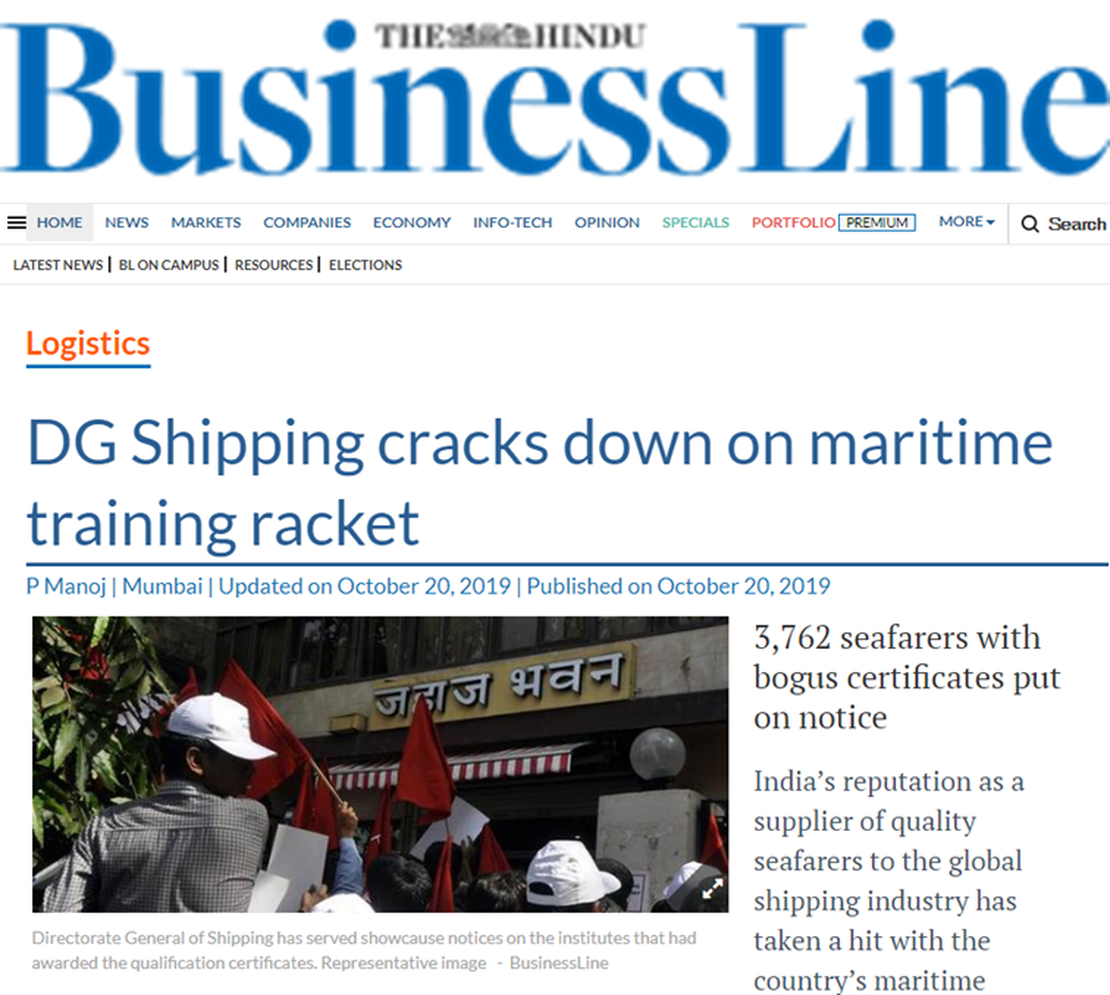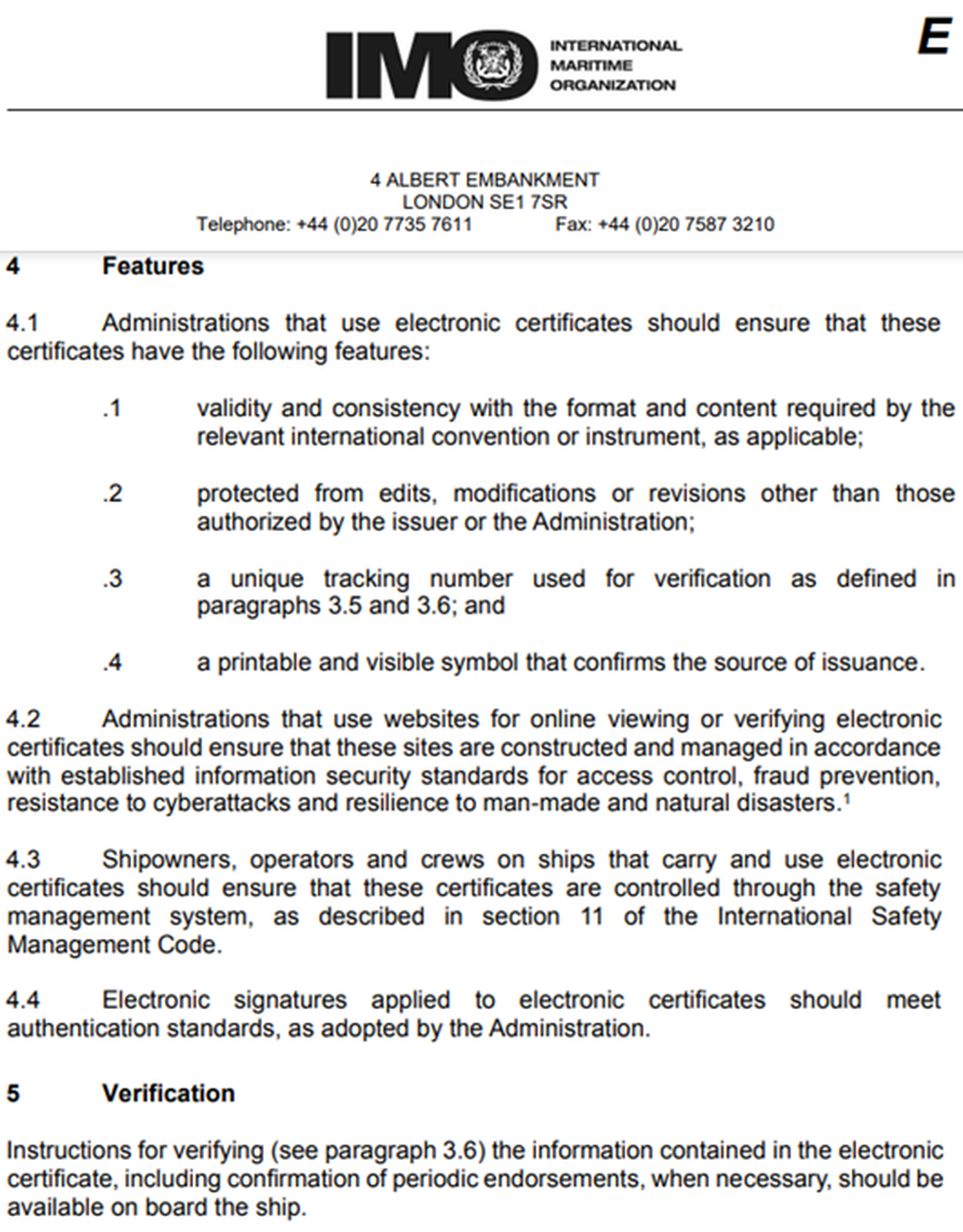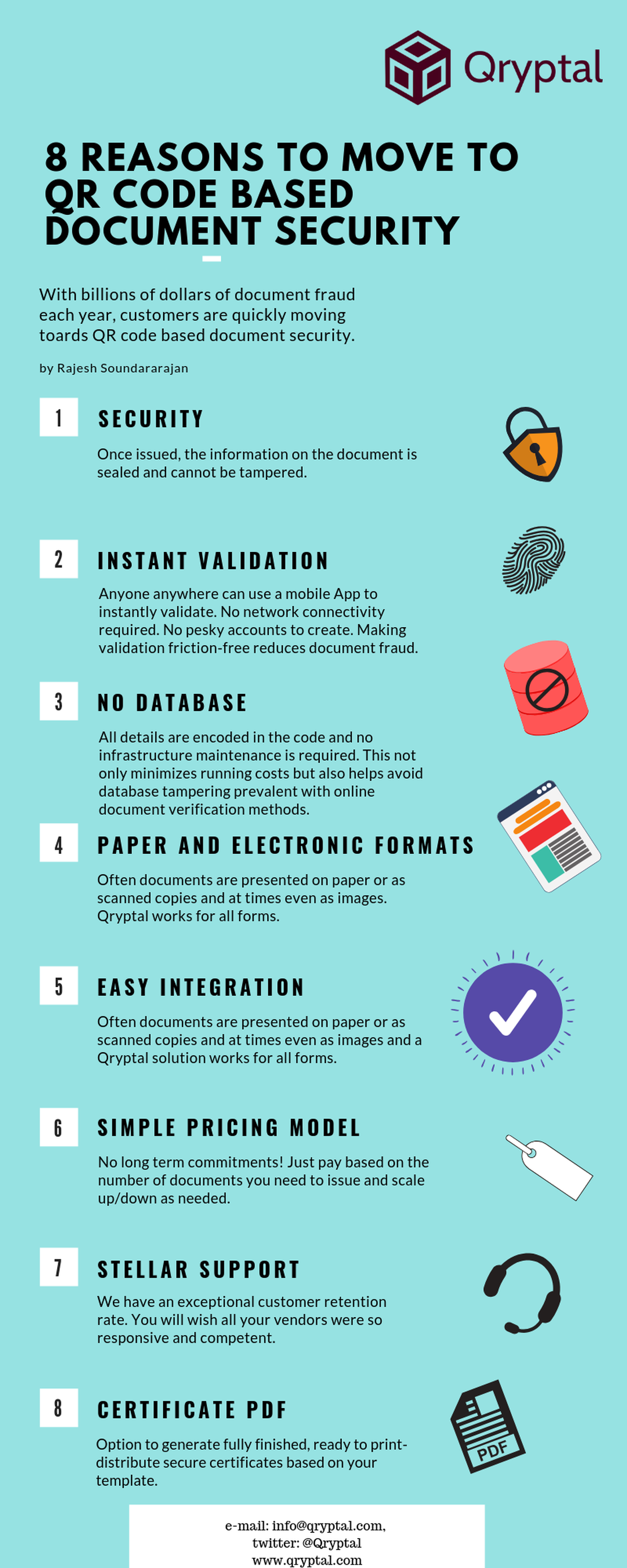Enhancing Document Security with Qryptal for IMO-Compliant Electronic Seafarer Certificates
- Rajesh Soundararajan
- Nov 07, 2023
- 5 min read
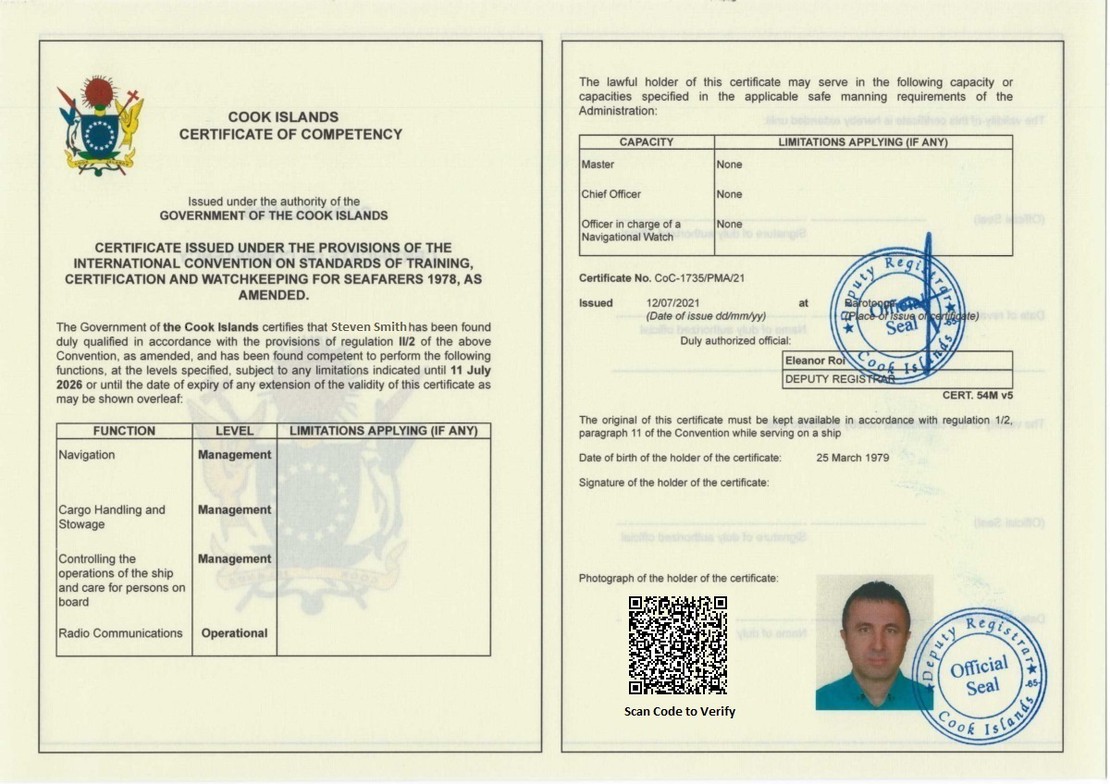
Navigating the Digital Age with Qryptal
The maritime industry has continuously been looking to embrace digital transformation. With electronic documents gaining widespread adoption, the International Maritime Organization (IMO) has released guidelines for the use of electronic certificates of seafarers, ushering in a new era of convenience and efficiency for the industry. However, with this shift comes the critical need to ensure the utmost security of these digital documents.
The Importance of Secure Electronic Seafarer Certificates
Seafarer certificates serve as essential credentials, verifying the qualifications and competencies of seafarers, who play a crucial role in ensuring maritime safety and security. Any compromise in the integrity of these certificates poses significant risks, including the possibility of fraudulent activities, unqualified personnel operating ships, and potential accidents.
As the IMO guidelines emphasise, electronic seafarer certificates must be protected from fraud. This entails implementing robust security measures that safeguard the authenticity, validity, and integrity of these digital documents.
As discussed in an article by Fathom World titled “The e-Certificates are coming!”, the Isle of Man Ship Registry has already taken the lead in adopting electronic documents, launching a complete online system for STCW (Seafarers’ Training, Certification and Watchkeeping) Endorsements. This initiative demonstrates the growing momentum towards digitalisation in the maritime industry.
The Guidelines encourage the use and recognition of electronic certificates, as they offer several benefits, such as:
Reducing administrative burdens and costs for seafarers and shipping companies
Improving the security and integrity of certificates and preventing fraud and forgery
Facilitating the verification and validation of certificates by port State control officers and other relevant stakeholders
Enabling the interoperability and compatibility of certificates across different systems and platforms
Supporting the mobility and employability of seafarers in the global maritime labour market
However, there were also concerns raised at different points that the use of electronic certificates also poses some challenges and risks, such as:
Ensuring the authenticity and validity of electronic certificates and their issuers
Protecting the privacy and confidentiality of seafarers’ data and information
Maintaining the availability and accessibility of electronic certificates and their verification systems
Establishing the legal recognition and acceptance of electronic certificates by different jurisdictions and authorities
Developing the technical standards and specifications for electronic certificates and their verification systems
To address these challenges and risks, the Guidelines provide some principles and recommendations for the issuance, use, and verification of electronic certificates of seafarers, such as:
Electronic certificates should be issued by or under the authority of the Administration of the flag or State of the ship and should contain the same information as the paper certificates
The certificates should be protected from unauthorised modification and should include an electronic signature or other means of authentication of the issuer and the contents
Each certificate should have a unique tracking number or other identifier that allows the verification of their authenticity and validity through a secure and accessible online system
They should be presented in a format that ensures viewing compatibility for all intended verifiers, such as PDF or HTML
Electronic certificates should be stored in a secure and reliable manner, such as on a personal device, a secure website, or a secure database
Specific verification instructions, such as a verifier domain, a QR code, or the contact information of the issuer, should accompany electronic certificates
Electronic certificates should be accepted by port State control officers and other relevant stakeholders, provided that they can be verified as authentic and valid through the online system or other means
Qryptal: A Proven Solution For IMO-Compliant Document Security
Qryptal is a pioneer in providing comprehensive, secure QR security solutions that can be used for electronic seafarer certificates. Its innovative technology and proven track record securing digital documents make it an ideal choice for IMO compliance. Its multi-layered security approach encompasses a suite of features that address the complete and specific requirements of IMO guidelines in an extremely simple, efficient and affordable manner. These include:
1. Secure Document Creation and Issuance: Qryptal’s secure QR code platform ensures that electronic seafarer certificates are created and issued with the highest levels of integrity. This includes tamper-proof document creation, verifiable signatures, and secure server-less data architecture.
2. QR Code Technology for Enhanced Verification: Qryptal integrates QR codes into electronic seafarer certificates, enabling easy and secure verification. QR codes provide a quick and convenient way for port state control officers, employers, and other stakeholders to verify the authenticity and validity of certificates using their smartphones or other devices. Interestingly, the solution also works in a printed certificate format and not just the digital format.
3. Equal or More Powerful than Blockchain-Powered Document Registry: Qryptal compares well with blockchain technology to create an immutable and transparent record of electronic seafarer certificates. This decentralised architecture provides a secure and auditable record of all certificates, ensuring their long-term integrity and preventing forgery or unauthorised alterations.
4. Secure Document Sharing and Access: Qryptal facilitates secure sharing and access to electronic seafarer certificates among authorised parties. This enables seafarers to easily share their certificates with employers, port authorities, and other relevant stakeholders while maintaining control over their data.
5. Enhanced Document Security and Improved Data Integrity: Qryptal’s multi-layered security approach safeguards electronic seafarer certificates from fraud, tampering, and unauthorised alterations. Qryptal’s secure document issuance and serverless storage processes ensure the long-term integrity of electronic seafarer certificates.
6. Streamlined Verification Process: QR code technology and blockchain-powered document registry enable quick, easy, and secure verification of certificates.
7. Simplified Document Sharing: Qryptal facilitates secure and controlled sharing of certificates among authorised parties not just in digital format but also tamperable in air-gapped situations with physical documents.
8. Reduced Administrative Burden: Qryptal’s solutions streamline document management and verification processes, reducing administrative burdens for maritime organisations.
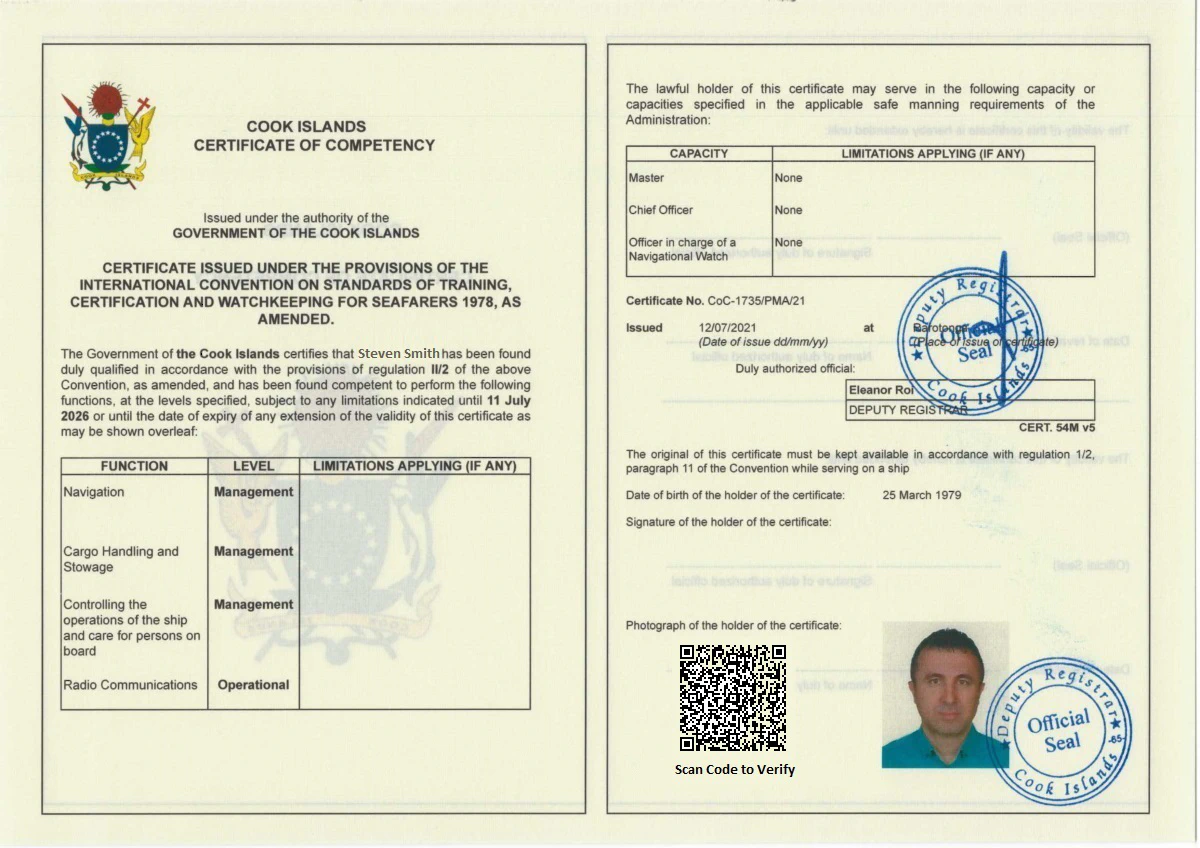
Summary
Adopting Qryptal QR for electronic seafarer certificates marks a significant step forward in the maritime industry’s digital transformation. This advancement has built in robust security measures to safeguard the integrity of these digital documents. Qryptal’s proven technology and comprehensive security solutions offer a compelling case for IMO compliance, ensuring the security and integrity of electronic seafarer certificates while promoting efficiency and convenience for maritime stakeholders.
Suggested further reading
Another massive seafarer certificate scam
International Maritime Organization Mandates Secure Electronic Document
Infographic on QR code based Document Security
